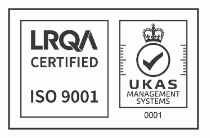The Internet is intrinsically linked to our lives – we share moments with our friends, work, watch movies, play games and much more. However, the risk of being hacked is always a possibility. Hackers exploit the weaknesses of the systems we use daily. Unfortunately, a system can always be hacked, but at the same time, it is possible to implement easy and efficient ways to protect our data.
Let’s see them in detail:
> Strong Passwords
When it comes to creating a password, it can be a boring and frustrating process. Especially when we cannot proceed with our preferred password when it is deemed too weak. Well, that password check is vital for protecting our accounts and our data. Using a strong password will make hackers’ lives difficult, because it cannot be guessed and even when it can be decrypted, it can be a lengthy process. Most of the time, a hacker will just give up if a password is too strong.
> Two-Factor Authentication (2FA)
Enabling two-factor authentication is something we all should do. This feature adds an extra layer of protection by requiring a second form of verification, such as a code sent to your phone. The code is often sent by SMS, so this means it cannot be intercepted by someone else.
> Software Updates
As previously mentioned, hackers often exploit software weaknesses of our systems. The good news is that software and OS providers always improve their code, fixing it where it’s vulnerable, in order to increase the level of security. That is why our phones and laptops sometimes require automatic updates to keep working. It’s annoying and it takes time, but it is an important thing to up-keep.

> Phishing Attempts
Although this technique has been used since the birth of the Internet, today’s refined schemes can be easy to fall for. Phishing is a method used by hackers to generate a website or an email that looks identical to an official email or a webpage. A good way to avoid becoming a victim of phishing is to always check the actual links before clicking on them. On phones a link can be previewed by tapping and holding it for a couple of seconds. On a PC or laptop, the preview of the link will be shown on the left-bottom corner when hovering on the link with the mouse. Unfortunately, another method is by faking a webpage, and that is why it is fundamental to always check that the URL (site address) on the browser bar corresponds with the website.
> Secure Wi-Fi Networks
It can be very convenient to connect to a public wifi network when outside, but that is something that should definitely be avoided. An open network allows literally anyone to join, and if a hacker is thinking of committing a crime, since a network can be traced, it is more convenient for them to commit a crime through an open network instead of from their own house.
> Backup Your Data Regularly
You should always backup your data and files, sometimes your system can be hacked or it can just stop working for multiple reasons. There are many ways of implementing a backup system like cloud storage, external drives and much more.
> Good common sense
Never trust something that feels suspicious or too good to be true. Use your intuition and be extra careful, especially when sharing data during an online transaction.
By following these simple steps you will make life more difficult for hackers and it will help you avoid data loss. Sometimes when it comes to implementing these features it is a bothersome matter, but it is worth doing so because it will allow you to live your life with technology with your mind more at ease.



